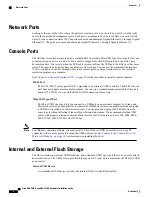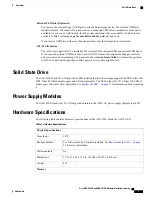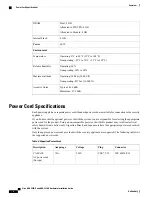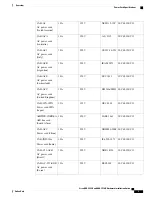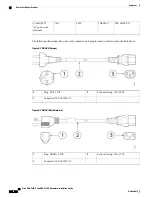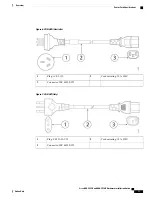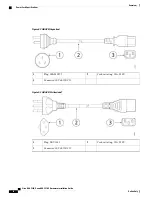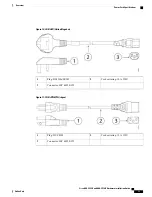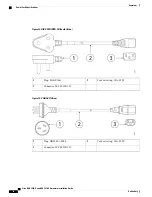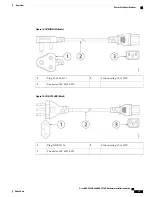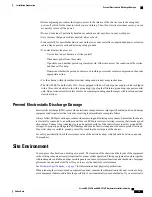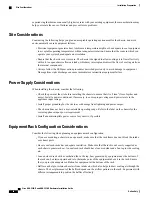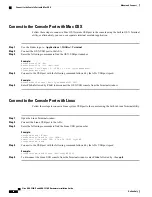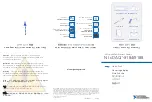
experiencing shutdowns or unusually high error rates with your existing equipment, these considerations may
help you isolate the cause of failures and prevent future problems.
Site Considerations
Considering the following helps you plan an acceptable operating environment for the chassis, and avoid
environmentally caused equipment failures.
•
Electrical equipment generates heat. Ambient air temperature might not be adequate to cool equipment
to acceptable operating temperatures without adequate circulation. Ensure that the room in which you
operate your system has adequate air circulation.
•
Ensure that the chassis cover is secure. The chassis is designed to allow cooling air to flow effectively
within it. An open chassis allows air leaks, which may interrupt and redirect the flow of cooling air from
the internal components.
•
Always follow the ESD-prevention procedures described previously to avoid damage to equipment.
Damage from static discharge can cause immediate or intermittent equipment failure.
Power Supply Considerations
When installing the chassis, consider the following:
•
Check the power at the site before installing the chassis to ensure that it is
“
clean
”
(free of spikes and
noise). Install a power conditioner, if necessary, to ensure proper voltages and power levels in the
appliance input voltage.
•
Install proper grounding for the site to avoid damage from lightning and power surges.
•
The chassis does not have a user-selectable operating range. Refer to the label on the chassis for the
correct appliance input-power requirement.
•
Install an uninterruptible power source for your site, if possible.
Equipment Rack Configuration Considerations
Consider the following when planning an equipment-rack configuration:
•
If you are mounting a chassis in an open rack, make sure that the rack frame does not block the intake
or exhaust ports.
•
Be sure enclosed racks have adequate ventilation. Make sure that the rack is not overly congested as
each chassis generates heat. An enclosed rack should have louvered sides and a fan to provide cooling
air.
•
In an enclosed rack with a ventilation fan in the top, heat generated by equipment near the bottom of
the rack can be drawn upward and into the intake ports of the equipment above it in the rack. Ensure
that you provide adequate ventilation for equipment at the bottom of the rack.
•
Baffles can help to isolate exhaust air from intake air, which also helps to draw cooling air through the
chassis. The best placement of the baffles depends on the airflow patterns in the rack. Experiment with
different arrangements to position the baffles effectively.
Cisco ASA 5508-X and ASA 5516-X Hardware Installation Guide
20
Online Only
Installation Preparation
Site Considerations

